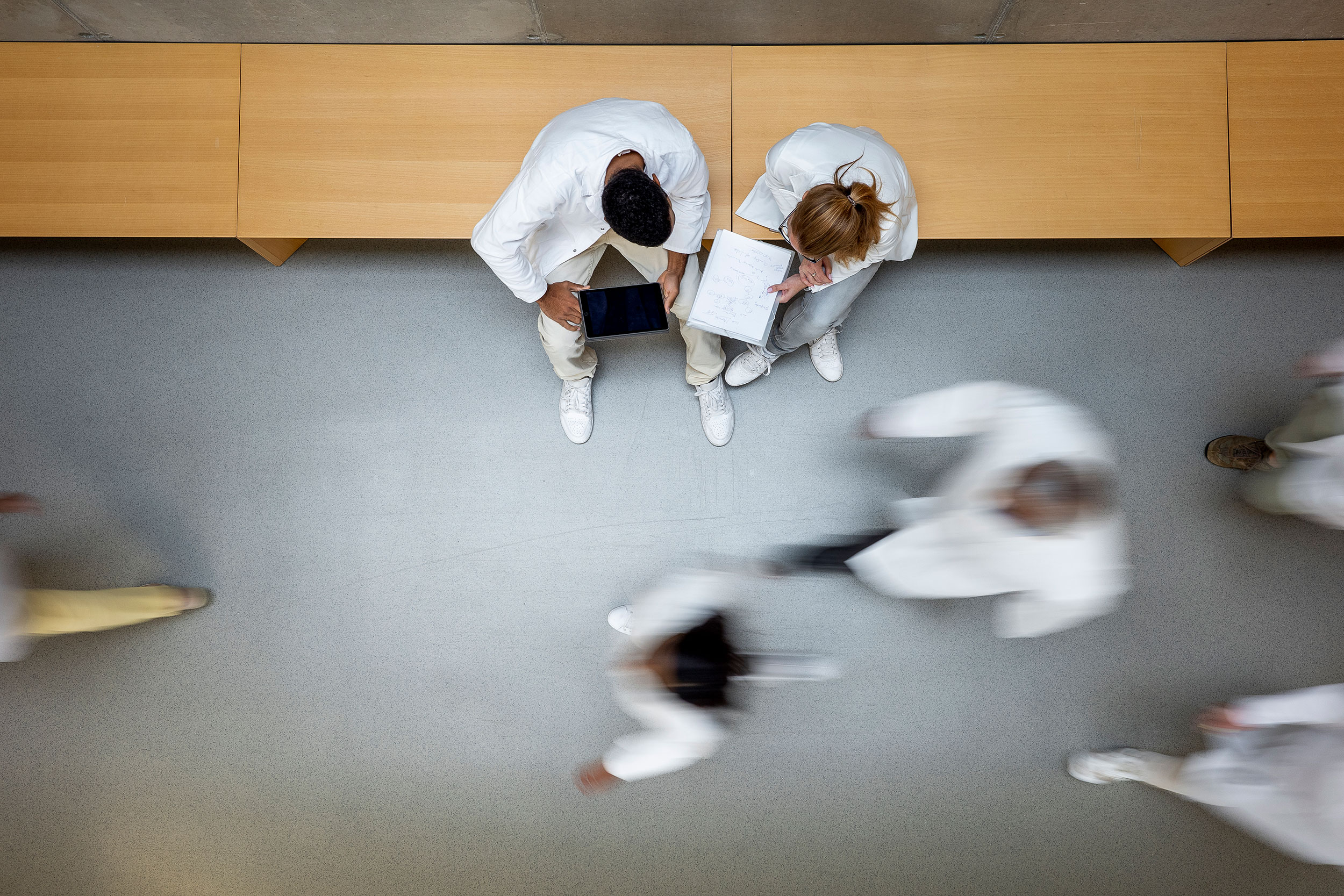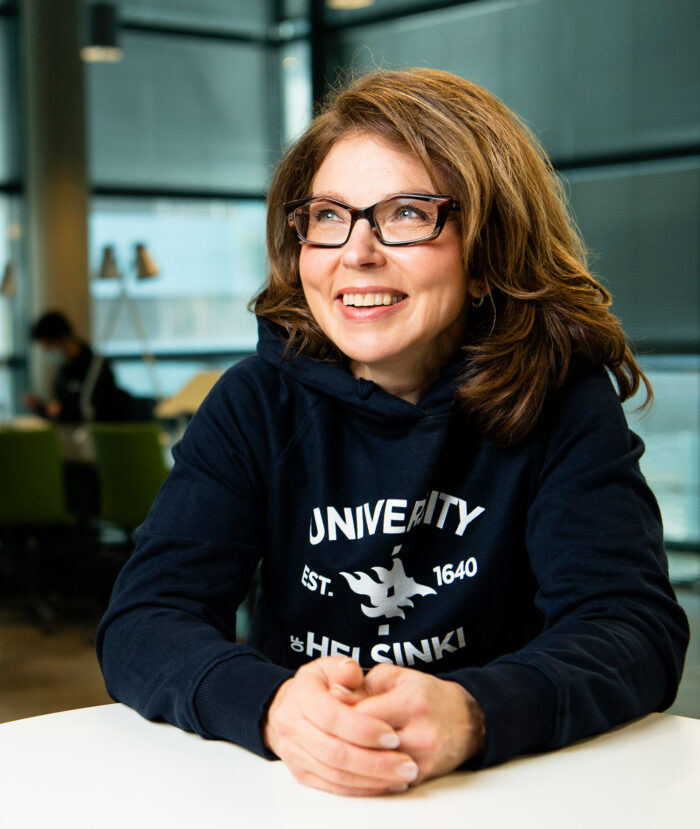Universities also welcome easier return migration
Universities welcome distinguished medical research returnees. The easiest way to get things moving is to contact the university already at the application stage.

Photo: iStock
“Brilliant project.”
”Excellent idea. Raises the bar for what we can do in Finland.”
Jussi Pihlajamäki, Dean, Faculty of Health Sciences at the University of Eastern Finland, and Anne Remes, Vice Rector for Research, Doctoral Education and Sustainability at the University of Helsinki, can scarcely conceal their delight at the foundations’ new Brain Gain programme.
The Finnish Medical Foundation, the Sigrid Jusélius Foundation and the Jane and Aatos Erkko Foundation, the three foundations funding medical research under the programme, are offering €2.5 million for a period of five years to internationally distinguished medical researchers returning to Finland.
“Much is talked about brain exodus and even brain drain,” Remes points out. “It’s great to try to turn the tide in the other direction.”
Pihlajamäki says that until now no similar funding instrument has been available despite the need for one. He says that he has heard about enquiries where researchers who have forged careers around the world have explored the possibility of receiving support for returning home. Even in the best cases, however, such support has been at best some tens of thousands.
“That’s not very much when talking about cutting-edge researchers with their own research group.”
On the other hand, €500,000 a year for a period of five years is a good start, even though that won’t fund a large research group either. ”But of course, the idea is to apply for funding from elsewhere after the initial stage,” Pihlajamäki says. In practice, the Brain Gain programme assumes that returning researchers will find employment in Finland either at a university or a research institute. The researcher is then accompanied by funding from the foundations.
”Much is talked about brain exodus and even brain drain.”
Anne Remes

Anne Remes
Vice Rector for Research, Doctoral Education and Sustainability, University of Helsinki
(Photo: University of Helsinki)
It’s advisable to explore cooperation beforehand
The combination of a distinguished researcher and funding of €2.5 million also appeals to universities. Nevertheless, Anne Remes at the University of Helsinki points out that from the university’s point of view, it’s always a matter of suitable cooperation, i.e. whether there is a suitable place for the returnee.
Application under the Brain Gain programme is made together with the university. Remes emphasises that it’s advisable to contact the university in good time beforehand.
“We can then explore together whether we can find a professorship, tenure track position or infrastructure supporting research related to the research topic.”
Funding from the Brain Gain programme cannot yet allow the building of a very massive infrastructure, for example.
On the other hand, Remes considers that tendering for universities wouldn’t be in very good taste with funding that has already been secured.
“It’s difficult to make binding promises, for example, about a professorship in advance. On the other hand, for example, those who have received funding from the European Research Council have, as a rule, also found permanent employment,” Remes points out.
Jussi Pihlajamäki at the University of Eastern Finland is more straightforward. He considers that if high-calibre returnees were found, it would not be in the university’s interests to make things difficult.
“I can almost promise that at least a tenure track place would be arranged, and €100,000 in university funding on top of the foundation’s money if sufficiently interesting people were coming.”
Returnees will also hopefully stay
Funding under the Brain Gain programme is limited to returning Finns or researchers who have studied in Finland. This limit may at first seem strange, wouldn’t researchers from elsewhere be just as good?
“I think the focus in this case is fully justified. However, many different funding instruments are available,” Pihlajamäki says.
”A returning migrant is more likely to really stay and integrate here and not just test the waters until a better offer comes up.”
In addition to research funding, returning to Finland may be hampered by family circumstances, especially the employment of the spouse. Remes says that the University of Helsinki has launched a programme with the express idea of helping the spouses of international researchers find employment in Finland. So far, there has been good experience with the programme.
Pihlajamäki says that in Eastern Finland, too, help can also be given for the employment of spouses.
“But of course, it’s difficult to make any binding promises about this.”
Continuation of the programme?
Other development ideas Pihlajamäki mentions include the possibility of disbursing the funding between two applicants, for example.
“I understand that this time round we’re aiming for well-established applicants. But if you were to aim a notch lower for people who have good ideas but don’t yet have a professorship or a large research group, you could use the same approach to attract more of them.”
Remes, on the other hand, likes the current limit.
“I think this is exactly the form of funding that we’ve been lacking. This is an exciting pilot, let’s see where it leads.”
Pihlajamäki also emphasises continuity. Under the Brain Gain programme, it’s been decided to fund 0-1 researchers annually. If no sufficiently interesting applicant is found, this means the money may not be distributed.
Even if this happens at first, it’s not worth getting discouraged,” Pihlajamäki says.
”Here we’re after bigger fish and bigger fish move slowly. The first round should be thought of from a marketing point of view – even if someone suitable doesn’t have time to apply now, they may remember the call for applications in a year or two and then apply.”

Jussi Pihlajamäki
Dean, Faculty of Health Sciences, University of Eastern Finland
(Photo: University of Eastern Finland)
The grant application time for the Brain Gain programme is 6 December 2023 – 31 January 2024. Read more: www.aivotuonti.fi.